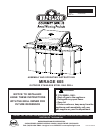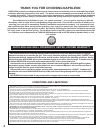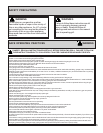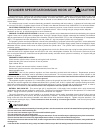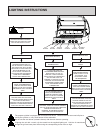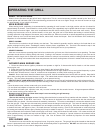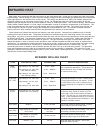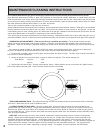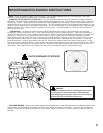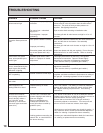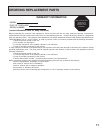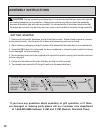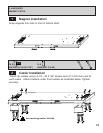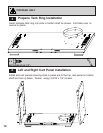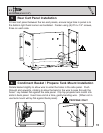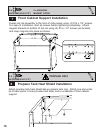Special offers from our partners!

Find Replacement BBQ Parts for 20,308 Models. Repair your BBQ today.
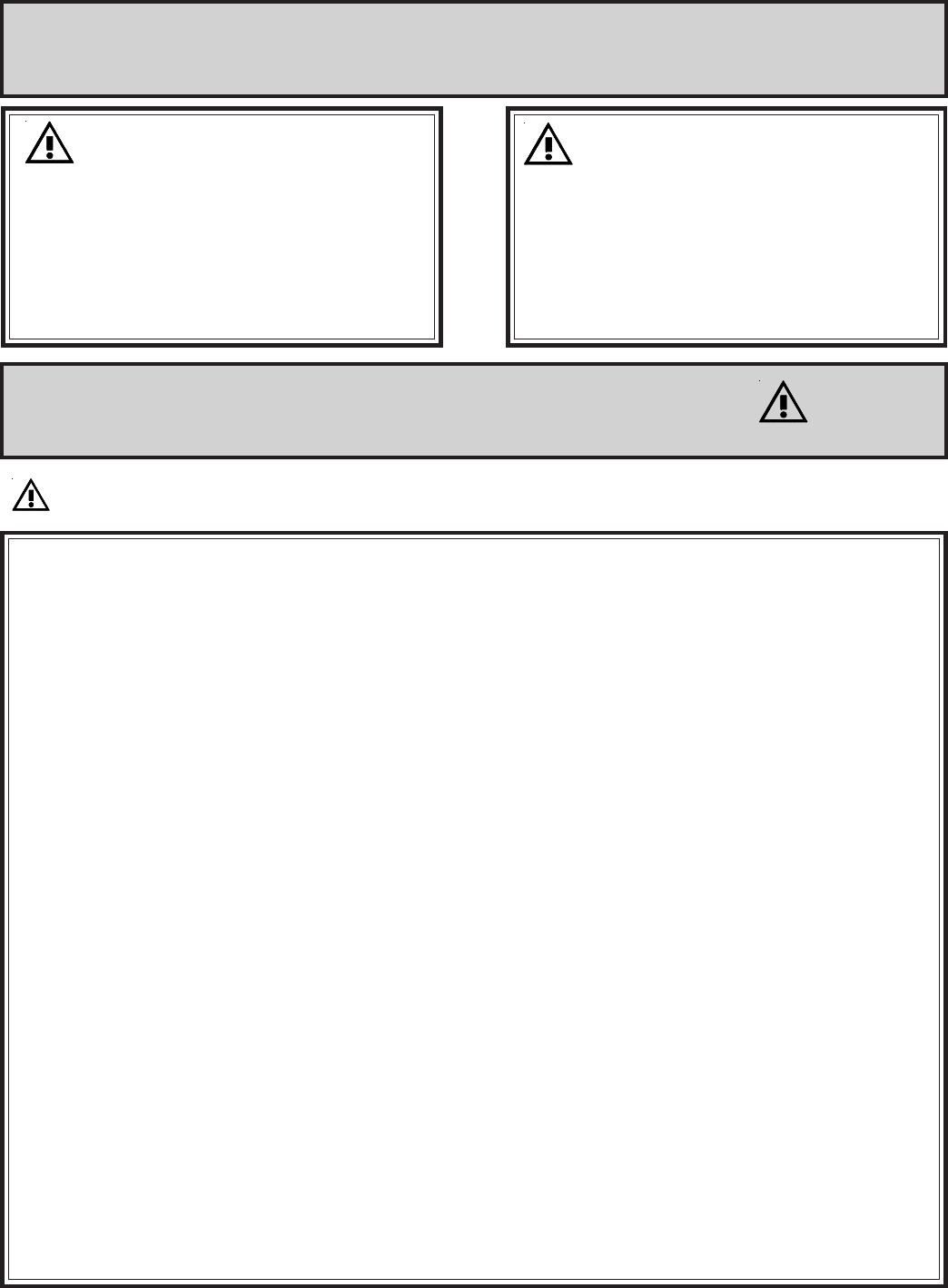
3
SAFETY PRECAUTIONS
Do not store or use gasoline or other
flammable liquids or vapor in the vicinity of
this or any other appliance. An L.P. cylinder
not connected for use must not be stored in
the vicinity of this or any other appliance.
Keep area clear and free from combustible
materials.
WARNING
WARNING
WARNING
Failure to follow these instructions could
result in property damage, personal
injury or death. Read and follow all
warnings and instructions in this manual
prior to operating grill.
SAFE OPERATING PRACTICES
DANGER: READ ALL INSTRUCTIONS CAREFULLY BEFORE OPERATING GRILL. FAILURE TO FOLLOW
THESE INSTRUCTIONS EXACTLY COULD RESULT IN A FIRE CAUSING SERIOUS INJURY OR DEATH.
•Read the entire instruction manual before operating grill.
•Under no circumstance should this gas grill be modified.
•Follow lighting instructions carefully when operating grill.
•Gas must be turned off at the propane cylinder or at the natural gas supply valve when the gas grill is not in use.
•Keep children and pets away from hot grill, DO NOT allow children to climb inside cabinet.
•Do not leave the grill unattended while in use.
•Do not move grill when hot or operating.
•This gas grill must not be installed in or on recreational vehicles and/or boats.
•This gas grill must only be stored outdoors in a well-ventilated area and must not be used inside a building, garage or any enclosed area.
•Maintain proper clearance to combustibles (16” to rear of unit 7” to sides). Additional clearance (24”) is recommended near vinyl siding
or large panes of glass.
•At all times keep the ventilation openings of the cylinder enclosure free and clear from debris.
•Do not locate unit under combustible construction.
•Do not locate in windy settings. High winds adversely affect the cooking performance of the gas grill.
•When the gas grill is stored indoors, the propane cylinder must be disconnected from the grill and stored outdoors in a well ventilated
area, disconnected cylinders must not be stored in a building, garage or other enclosed area.
•Inspect the gas hose before each use. If there is evidence of excessive abrasion or wear, it must be replaced before using the gas
grill, with a replacement hose assembly specified by the manufacturer.
•Never store a spare LP gas cylinder under or near this grill.
•Never fill the cylinder beyond 80 % full.
•Do not attempt to use a cylinder which is not equipped with a QCC1 type connection.
•Leak test all connections before first use, even if the grill was purchased fully assembled, annually or whenever any gas component
has been replaced.
•Never use natural gas in a unit designed for liquid propane gas.
•Never use lighter fluid in a gas grill.
•Use charcoal briquettes only with a Napoleon charcoal tray designed for this unit.
•Burner controls must be off when turning supply cylinder on.
•Do not light burner with lid closed.
•Do not operate rear burner with main burner operating.
•The lid is to be closed during the preheat period.
•Do not route hose underneath drip pan-proper hose clearance to bottom of unit must be maintained.
•Clean grease tray and sear plates regularly to avoid build-up which may lead to grease fires.
•Ensure sear plates are positioned properly according to sear plate installation instructions.
•Do not use side shelves to store lighter, matches or any other combustibles.
•Keep gas hose away from heated surfaces.
•Keep electrical supply cords away from water or heated surfaces.
•Inspect infrared burner venturi tube for spider webs and other obstructions periodically. Clean the tubes completely if you find any such
obstructions.
•The outdoor cooking gas appliance and its individual shutoff valve must be disconnected from the gas supply piping system during any
pressure testing of that system at test pressures in excess of 0.5psi (3.5kPa).
•The outdoor cooking gas appliance must be isolated from the gas supply piping system by closing its individual manual shutoff valve
during any pressure testing of the gas supply piping system at test pressures equal to or less than 1/2 psi (3.5 kPa).



